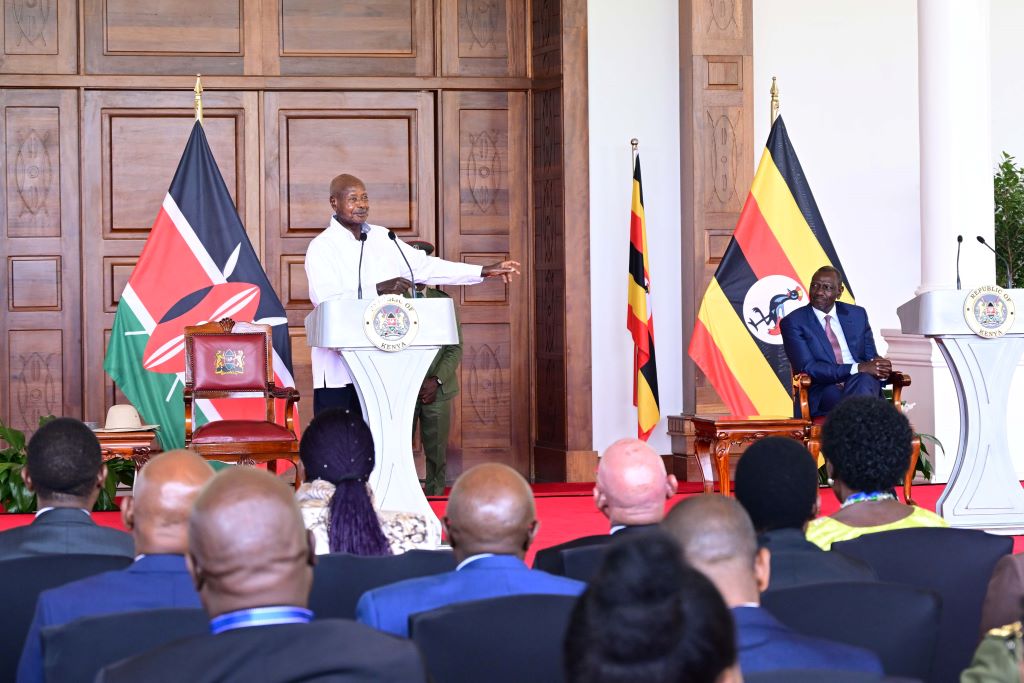
In a joint press briefing held at Nairobi’s State House on Wednesday, Kenyan President William Ruto and Uganda’s President Yoweri Museveni expressed deep concern over increasing trade restrictions within the East African Community (EAC), warning that such policies threaten the region’s economic progress and integration efforts.
The two leaders, meeting for the first time this year, emphasized the need for open markets among member states and called out protectionist moves that have hindered the free movement of goods across the bloc.
Their remarks come amid growing tensions following Tanzania’s imposition of new trade restrictions.
“We discussed persistent non-tariff barriers that are impeding the flow of goods and undermining the objectives of regional integration under the EAC framework,” said President Ruto.
Although no specific country was named, their comments followed Tanzania’s recent move to ban foreign nationals from participating in 15 small-scale economic activities.
Tanzanian authorities defended the decision as a measure to protect local citizens from what they termed as unfair competition. However, critics argue the policy contradicts the EAC’s common market protocol, which guarantees equal economic opportunities for citizens of member states.
Additionally, Tanzania reinstated industrial duties on products manufactured within EAC countries, a move that undermines the bloc’s external common tariff policy aimed at promoting regional industrial growth and safeguarding shared economic interests.
President Museveni did not mince words in his criticism of regional disunity. “The East African region is structured like a house with rooms in different countries.
Uganda doesn’t have a coastline, nor does South Sudan, Rwanda, Burundi, Central African Republic, Chad—even Ethiopia doesn’t have one,” he said. “Yet no one is working on that. If you’re a president or minister and you can’t resolve market access issues, what are you leading?”
He continued, “If you don’t have an answer to who will buy your goods, and you’re in charge—then the future is dark.”
Museveni also questioned the logic of fragmented economic policies, saying, “How can your living room be in one country, the bedroom in another, and the kitchen in yet another? What kind of arrangement is this?”
The summit was held against the backdrop of recurring trade disagreements between Kenya and Uganda, particularly over agricultural products such as dairy and poultry.
“We still believe the EAC is a model for successful regional integration,” said Ruto. “We reaffirm the importance of unity, shared economic vision, and collective prosperity as the foundation for our mutual development.”
According to the EAC Secretariat, intra-regional trade among member states has grown, but non-tariff barriers remain a persistent challenge. In 2024, the bloc’s total trade with the rest of the world increased by 14.17%, reaching $124.9 billion from $109.4 billion the previous year.



